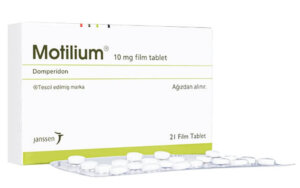 The term “menopause” is used to mark the end of a woman’s reproductive years, and the primary signs are the cessation of menstruation (amenorrhea). Menopause isn’t a disease or disorder but the outcome of natural biological processes accompanying aging. Typically, menopause can occur anywhere between the ages of 45 and 55, but it can vary, and the process itself can be different for each woman.
The term “menopause” is used to mark the end of a woman’s reproductive years, and the primary signs are the cessation of menstruation (amenorrhea). Menopause isn’t a disease or disorder but the outcome of natural biological processes accompanying aging. Typically, menopause can occur anywhere between the ages of 45 and 55, but it can vary, and the process itself can be different for each woman.
What are the main stages of menopause?
Menopause isn’t an overnight change but rather is a gradual process that includes several stages:- Perimenopause is the transition phase leading up to menopause, often beginning several years before the last menstrual period. During this stage, the ovaries gradually produce less estrogen.
- Menopause can be diagnosed after 12 consecutive months without a menstrual period, known as amenorrhea. At this stage, it is almost certain that the ovaries have stopped releasing eggs, and the production of the main hormones, estrogen and progesterone, will have sharply tapered off.
- Postmenopause is the years after menopause, which can be free of any obvious signs of the change, but due to the lower levels of estrogen, it can carry the risk of a variety of health problems.
How do you know that menopause is starting?
Although it is a highly individual experience, and the signs and symptoms vary, the most common signs include significant changes, both physically and emotionally. All of what is felt and seen as menopause sets in is the result of hormonal changes that are taking place deep inside the body, as production of the main hormones produced in the monthly cycle of fertility starts to fall off. Perimenopause, often referred to as the transitional phase, is the period leading up to menopause in which many women first begin to experience the signs and symptoms of that hormonal change. Estrogen and progesterone levels decrease sharply, leading to the observable symptoms. Understanding these hormonal changes is key to recognizing the transition into menopause.What are the hormonal differences between fertility and menopause?
The typical menstrual cycle in a healthy and fertile woman is a complex interplay of hormones that prepare the body for potential pregnancy. This cycle, typically around 28 days, includes several phases:- The menstrual phase (typically days 1-5) starts with the shedding of the uterine lining, marking the beginning of the menstrual cycle.
- The follicular phase (days 1-13) progresses parallel with the menstrual phase, as the pituitary gland in the brain releases follicle-stimulating hormone (FSH), which stimulates the ovaries to produce egg-containing follicles. Alongside rising FSH, estrogen levels rise, preparing the uterine lining to receive a fertilized egg.
- Around mid-period, the pituitary gland responds to the high estrogen levels. It releases a surge of luteinizing hormone (LH), triggering the release of an egg from the ovary. This is ovulation.
- Finally, in the luteal phase, the ruptured follicle transforms into the corpus luteum after ovulation, releasing progesterone and some estrogen. These hormones thicken the uterine lining, preparing it for implantation. If fertilization does not occur, these hormone levels drop, and the cycle restarts with menstruation.
Is there a diagnosis of the start of menopause?
There is no single test that can definitively produce a confirmation of whether or not a woman has transitioned into menopause. One of the hallmark signs of perimenopause is a change in the menstrual cycle, in which periods may become longer or shorter, lighter or heavier, or more or less frequent. This irregularity can be due to the fluctuating estrogen levels that happen during perimenopause but can also be the result of other external factors. So, while the symptoms of perimenopause are often indicative of the transition to menopause, specific medical tests may be needed to clarify and confirm. These are mainly blood tests of the relevant hormone levels:- As the ovaries produce less estrogen, follicle-stimulating hormone (FSH) levels increase. An elevated FSH level, especially when combined with the typical symptoms of perimenopause, can indicate that a woman is nearing menopause.
- Lower levels of estrogen can also signify the approach of menopause. However, since hormone levels fluctuate significantly during perimenopause, a single test may not provide a definitive answer.
- Irregular periods, which are often the first sign. Periods may become less frequent or unpredictable in flow.
- Hot flashes (or flushes) and night sweats causing sudden feelings of heat, usually in the upper part of the body, are common.
- Vaginal dryness, discomfort, and sometimes pain during intercourse.
- Mood swings, irritability, or increased levels of depression.
- Thinning hair and dry skin.
- Weight gain.
How important are health screenings to detect the onset of menopause?
Postmenopausal women have an increased risk of health problems such as osteoporosis, cardiovascular disease, and breast cancer. Regular health screenings are crucial, including mammograms, bone density tests, and cholesterol checks. Since there are no ways of stopping the transition into menopause, it is necessary to treat the symptoms rather than look for a cure. The main option is hormone replacement therapy (HRT), in which the body’s levels of estrogen are boosted. It can relieve hot flashes and night sweats (vasomotor symptoms), help sleep better, and maintain bone density. The most popular drugs for this are Premarin tablets, which supply conjugated estrogens available in three strengths (0.3mg, 0.625mg, and 1.25mg), and Estrace (estradiol), which supply natural estrogen. For women suffering vaginal dryness and itching, the same compounds come in external creams and gels such as Estrogel Topical Gel and Premarin Vaginal Cream. Another hormone that is affected by menopause is testosterone. Although thought of as the “male hormone”, in fact testosterone is an essential substance that plays a significant part in regulating a woman’s wellbeing. It works to maintain energy levels, a healthy sexual libido, and bone health. The lower testosterone levels that come with the start of menopause can cause:- Decreased libido or a loss of sexual desire
- Diminished sense of well-being
- Unexplained fatigue
- Reduced motivation
- Depression
- Body shape changes
- Mood changes
















